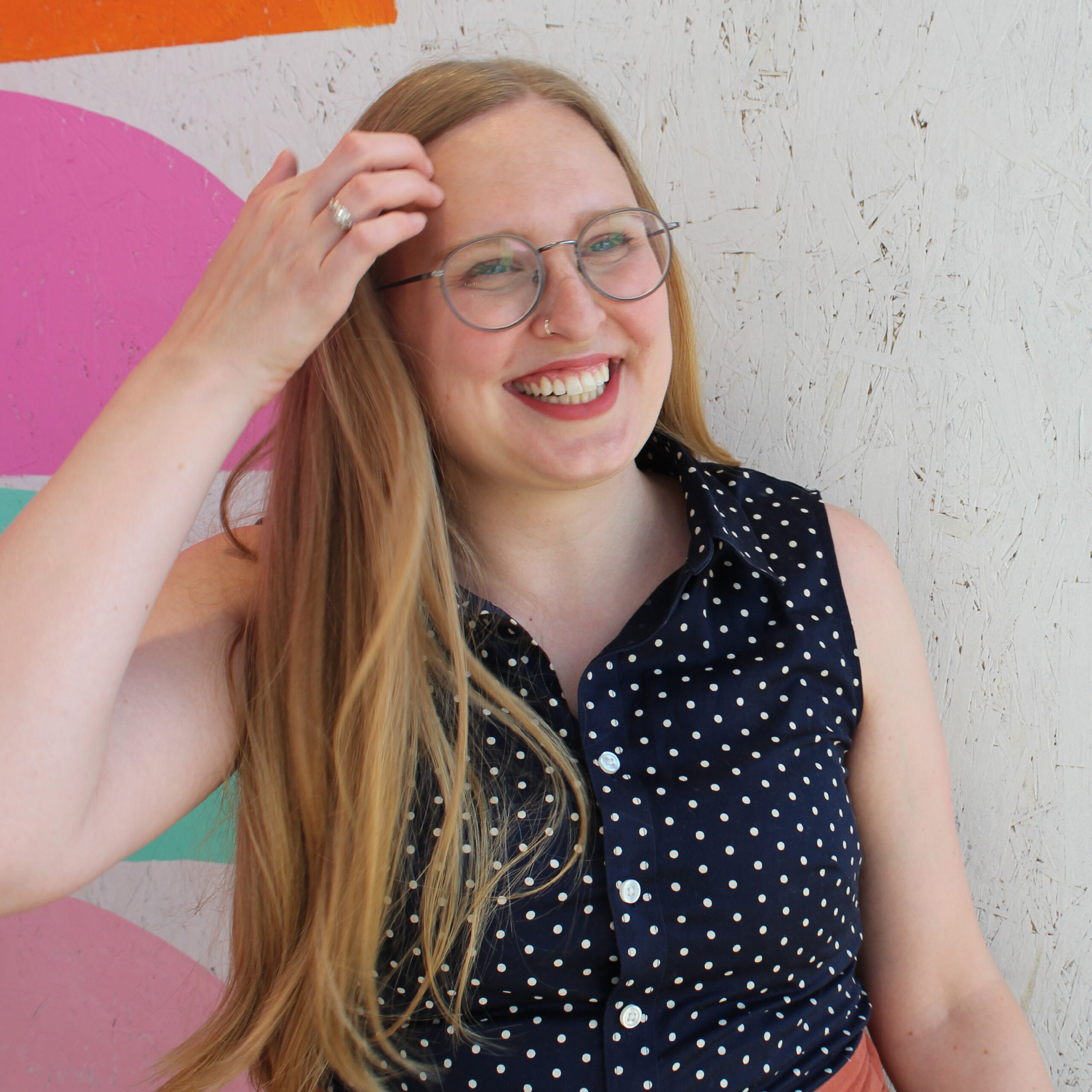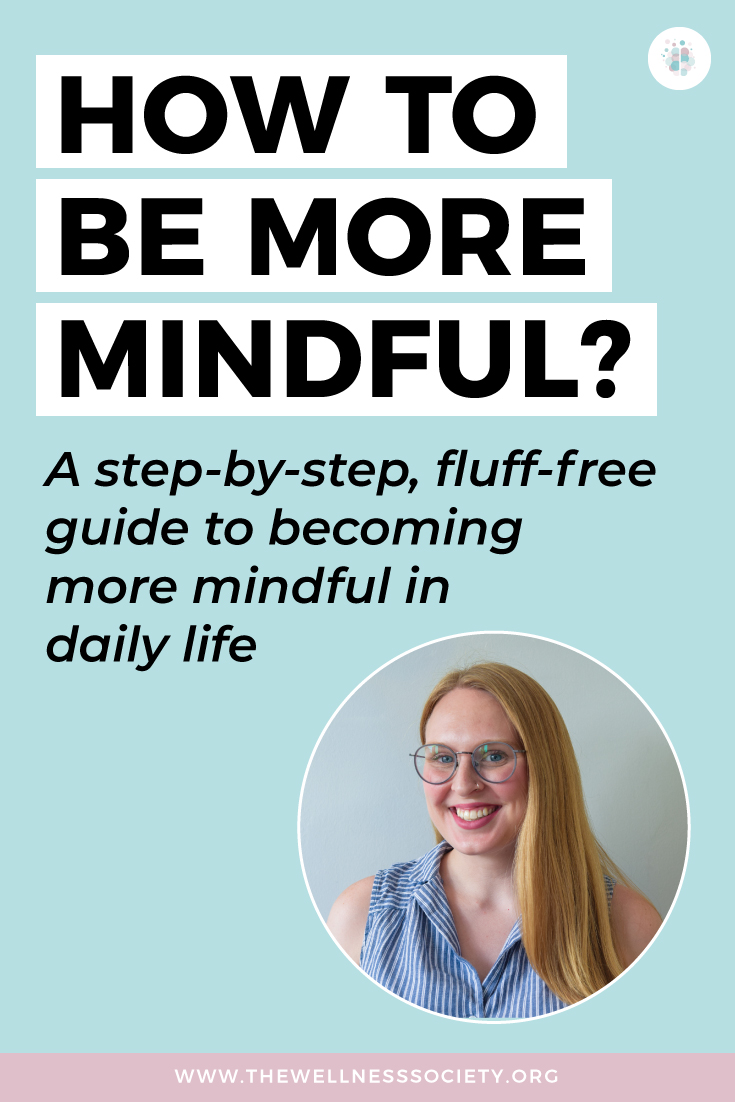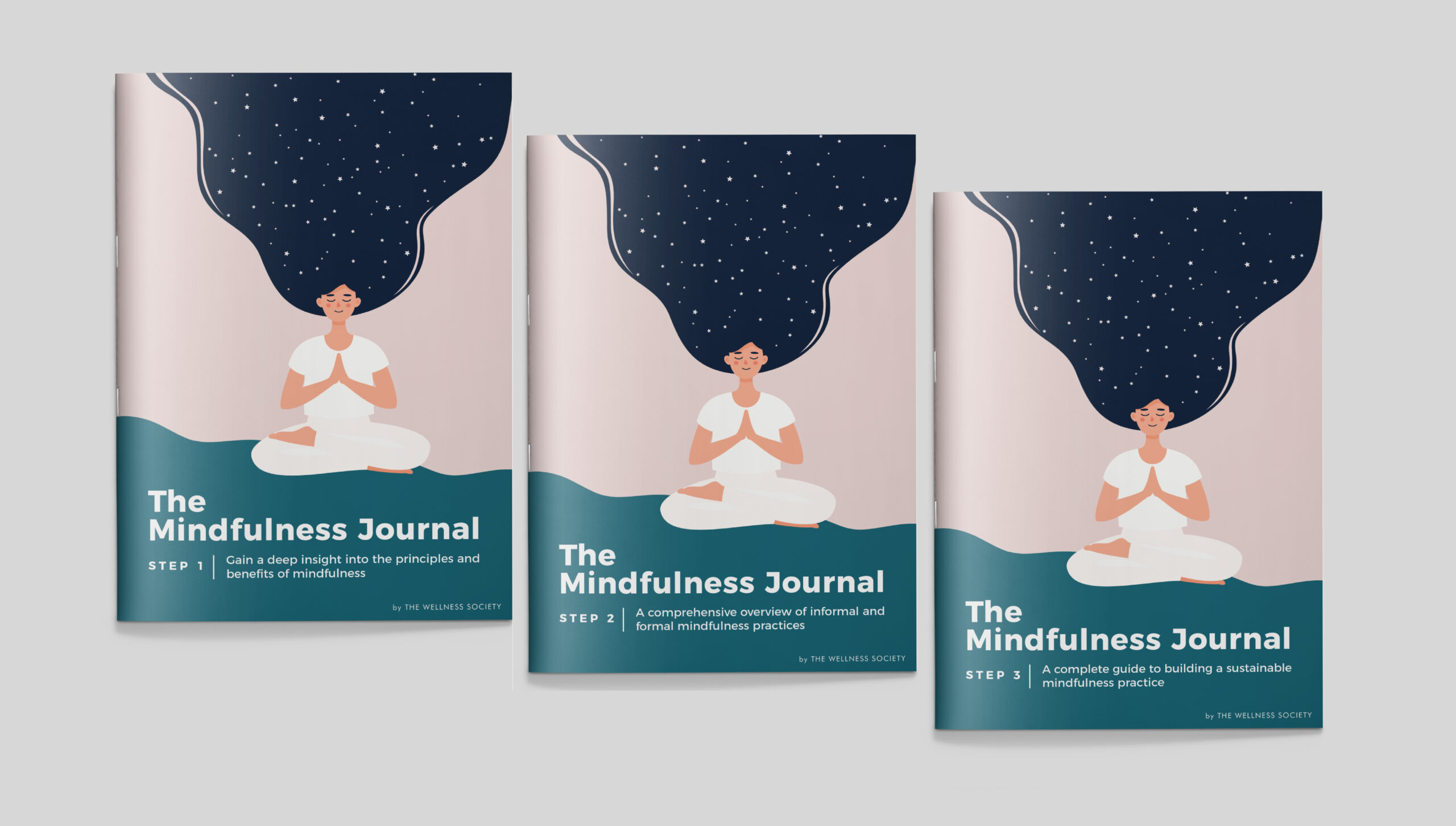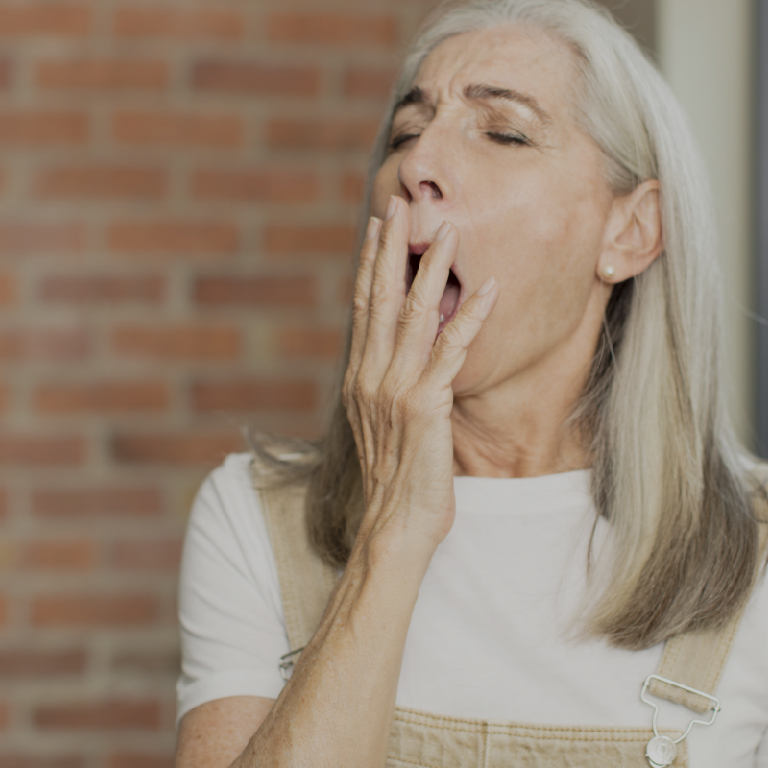If you find yourself mentally and physically exhausted at the end of each day, it may be because you’re rushing. Learning how to be mindful in daily life can help you slow down, and has many benefits.
Mindfulness is the practice of being in the present moment, on purpose, and observing what is happening from a non-judgmental lens.
Practicing mindfulness can decrease anxiety by helping you appreciate small positives in your life: The view out your front window, your morning cup of coffee, how it feels to wear your favorite outfit, etc.
Believe it or not, mindfulness can even increase productivity and creativity.
Many people assume that to practice mindfulness, they have to meditate. But that’s not necessarily the case. You can practice mindfulness simply by changing how you’re doing what you already do each day.
In this post, I break down how to be more mindful in your daily life in four easy steps.
Step 1: Observe Yourself Rushing
Notice yourself rushing though something in the moment it’s happening.
Which tasks are you rushing through? Many of us rush through things we dislike doing, or that bring up a lot of negative emotions.
Other times, we rush because of fear, and anxiety-provoking thoughts such as:
- I’ll never get all of this done.
- I can’t stop - I have too much to do!
- If I rest, I’ll never get caught up again.
Observe these thoughts as they appear in your mind.
Try not to judge yourself for having them. Instead, note them with an attitude of curious amusement.
Step 2: Pause
When you notice yourself rushing, pause and do something that brings you back to the present moment.
It’ll only take a few seconds, so you have time, I promise!
Here are some ideas for how to return to the present moment:
- Glance around the room and name 5 objects you see.
- Take 3 slow breaths.
- Place your feet flat on the floor and observe what they feel like.
- Notice any tension in your jaw, temples, or shoulders. Allow those muscles to soften.
You may be tempted to skip this step and go straight to step 3: reality check. Please don’t!
Step 2 is essential to signal your body, not just your mind, to slow down. The body and mind work best as a team.
Step 3: Reality Check
The reality is that we’ll always find more to do when we’re looking for it.
Many tasks that seem ‘urgent’ are not.
Ask yourself: will anyone die if I don’t complete this task, or if I complete it more slowly? Will they get seriously hurt or injured? Can it wait until tomorrow? What’s the worst that can happen if I put it off?
Unless you work in the ER, the answers to those questions are almost always “no, no, yes, and nothing much.”
Step 4: Proceed at Half Speed
Now, proceed with whatever you were doing at half speed. Yes, half! Slower than feels comfortable.
If you were typing 40 words per minute, try to type 20. If you were walking, decrease your pace by half. If you were talking, say the words twice as slowly.
If people look at you funny when you switch to half speed, just tell them, “I just noticed I was rushing. I’m working on slowing down in my daily life.” If they get frustrated with you, say, “I perform better when I do things slowly.” (Hey, it’s the truth!)
If you notice the urge to speed back up, just observe that urge. Where is it in your body? What emotions are coming up related to the urge?
If, after proceeding at half speed, you have sped up again unknowingly, that’s okay. No need to judge yourself. Just return to half speed.
Summary
To slow down in your daily life, the steps are:
- Observe yourself rushing
- Pause
- Return to the present moment
- Give yourself a reality check
- Proceed with what you were dong before at half speed
Rest assured, your body and mind will thank you for slowing down!
A Three-Step System to Improve Your Mindfulness Skills
The Mindfulness Journal helps beginners as well as seasoned practitioners enhance their mindfulness skills. Explore a wide variety of methods and discover what works best for you.

About Rebecca
Rebecca Ogle, LCSW, is a Licensed Clinical Social worker and therapist in Chicago, IL.Rebecca provides therapy to people with anxiety, low self-esteem, and people pleasing tendencies. She uses a feminist and social justice lens, and interventions based in CBT, mindfulness, and motivational interviewing.
For helpful, free content, follow her on Instagram or go to her website.
Pin For Later




